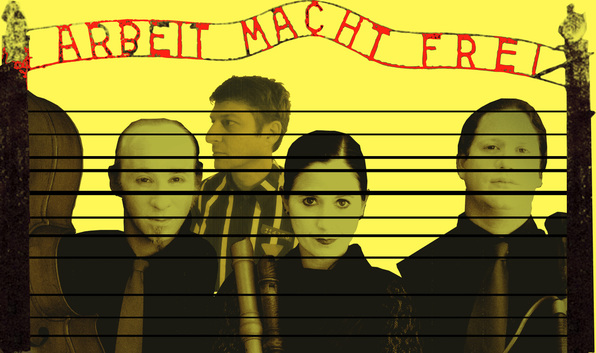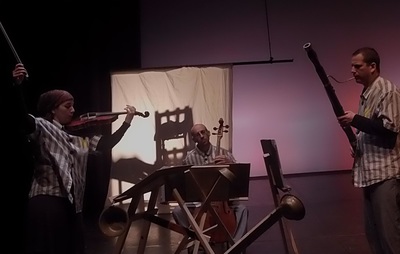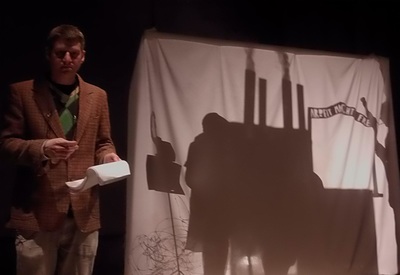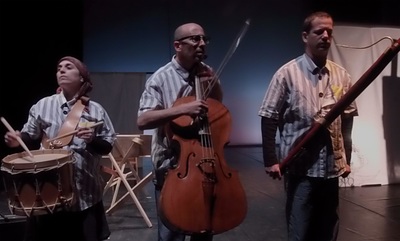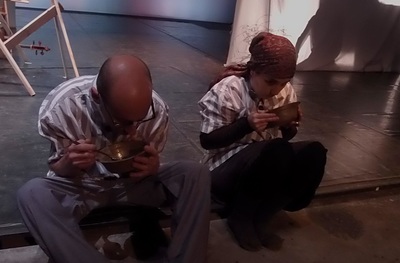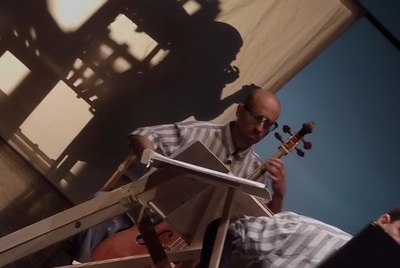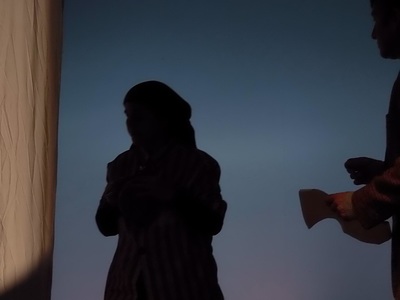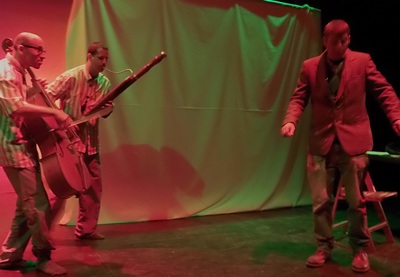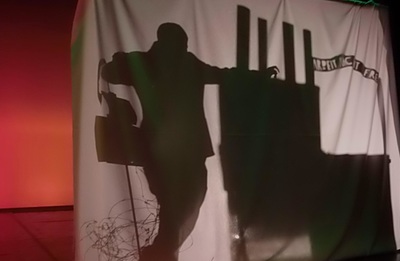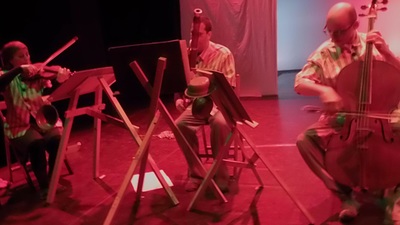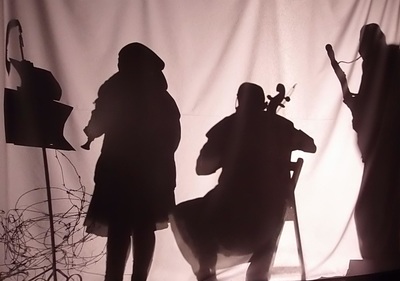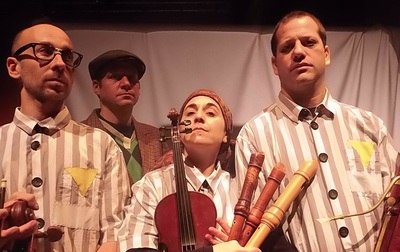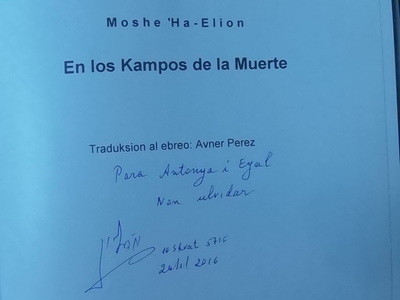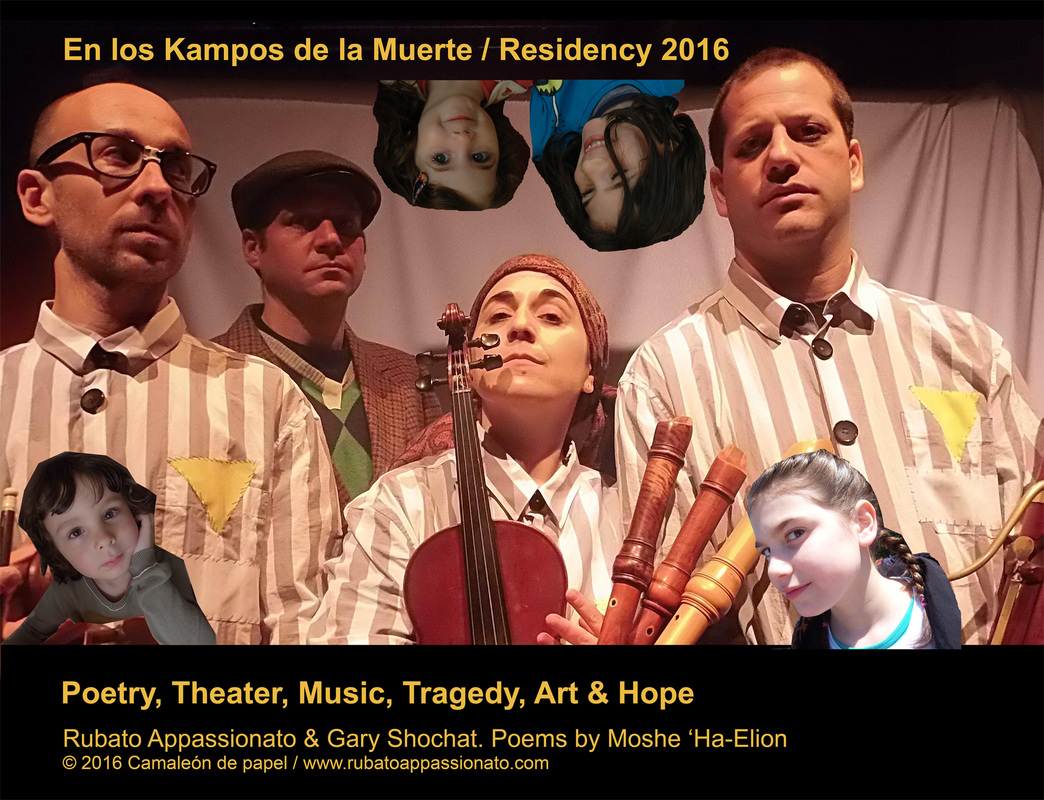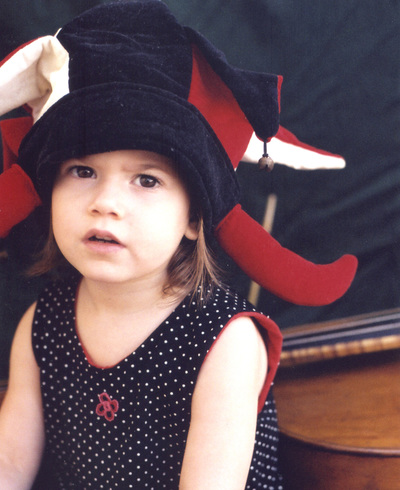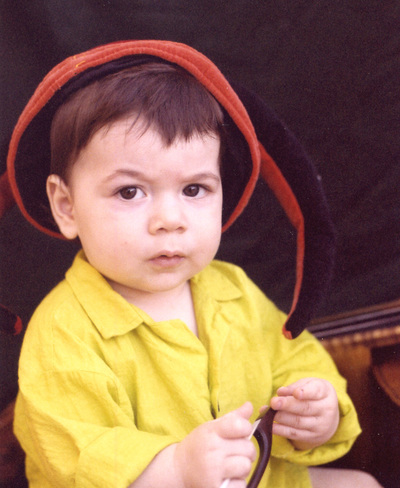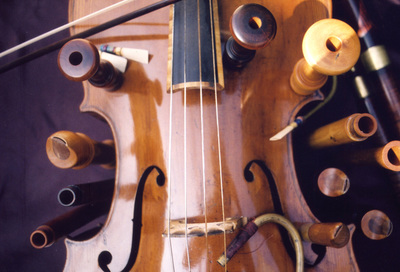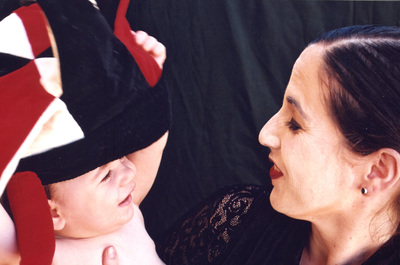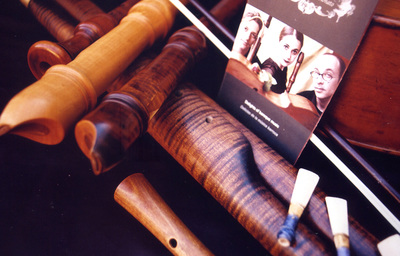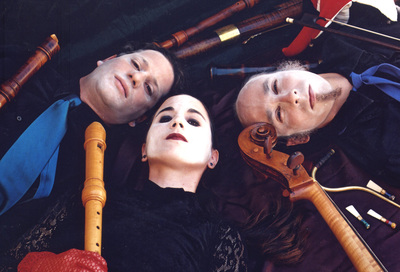En los Kampos de la Muerte
En los Kampos de la Muerte is an artistic project by Rubato Appassionato and Gary Shochat based on the work by Moshe 'Ha-Elion describing the deportation, suffering, starvation, torture, extermination and survival of the Greek Jews in the Holocaust. The project combines poetry, baroque music, photography and theatre.
Moshe 'Ha-Elion survived the hell of Auschwitz. He was the only survivor of his family (his mother and little sister were gassed in Auschwitz, and his uncle, aunts and cousins also died in Auschwitz). After Auschwitz, Moshe was in a death march for six days, and then, in three more concentration camps: Mauthausen, Melk and Ebensée (two sub-camps of Mauthausen).
Moshe was 18 years old when the Germans deported the Jewish men, women and children from Thessaloniki to Auschwitz. Only 5% of the Jewish community of Thessaloniki survived the Holocaust; the rest perished in the most horrible unimaginable conditions.
Moshe 'Ha-Elion survived the hell of Auschwitz. He was the only survivor of his family (his mother and little sister were gassed in Auschwitz, and his uncle, aunts and cousins also died in Auschwitz). After Auschwitz, Moshe was in a death march for six days, and then, in three more concentration camps: Mauthausen, Melk and Ebensée (two sub-camps of Mauthausen).
Moshe was 18 years old when the Germans deported the Jewish men, women and children from Thessaloniki to Auschwitz. Only 5% of the Jewish community of Thessaloniki survived the Holocaust; the rest perished in the most horrible unimaginable conditions.
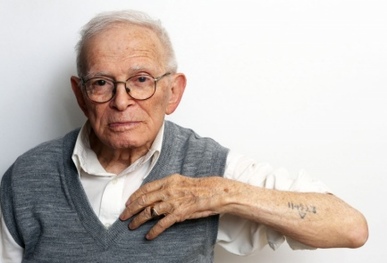
Moshé 'Ha-Elion was born in Thessaloniki in 1925. He lives in Israel. He has two children, six grandchildren and five great-grandchildren.
En los Kampos de la Muerte is a poetic and autobiographical text by Moshe 'Ha-Elion written in Ladino and formed by three very large poems: "La djovenika del lager" (dedicated to his sister); "Komo komian el pan"; and "En marcha de la muerte" (poem that describes his death march).
The Ladino (Djudeo-espanyol) is the mother tongue of the Sephardic Jews. A language they continue using after their expulsion from Spain by the Catholic Monarchs in 1492.
En los Kampos de la Muerte shows the dangers of Racism. The atrocities of the Holocaust, their magnitude, planning, efficiency and silence have no precedences in the history of humankind. And yet, nowadays, other massacres and genocides are continuing worldwide (although none comparable to the Holocaust). We have the obligation to never remain silent nor ignore these barbarities as was done during the Holocaust.
En los Kampos de la Muerte talks about the cruelty of barbarity, about hope and about the fight for life. It combines the antiquity of the Ladino sounds (in a context as terrible as the 40s in Europe) with the art of baroque music, the strength of poetry and the brutality of history. It is an artistic, philosophical, educational and poetic project.
Poems by Moshe 'Ha-Elion
Concept by Eyal Streett
Written and created by Rubato Appassionato & Gary Shochat
Company: Camaleón de papel
Project in residency in Cáceres (ES) 2016. La Nave del Duende: Centro de Gestión de Recursos Escénicos.
Photo: Transport of women and children arriving to Auschwitz-Birkenau. In some hours they would be selected for the gas chambers. Auschwitz-Birkenau, 1944. The Auschwitz Album. Yad Vashem.
Moshé 'Ha-Elion was born in Thessaloniki in 1925. He lives in Israel. He has two children, six grandchildren and five great-grandchildren.
En los Kampos de la Muerte is a poetic and autobiographical text by Moshe 'Ha-Elion written in Ladino and formed by three very large poems: "La djovenika del lager" (dedicated to his sister); "Komo komian el pan"; and "En marcha de la muerte" (poem that describes his death march).
The Ladino (Djudeo-espanyol) is the mother tongue of the Sephardic Jews. A language they continue using after their expulsion from Spain by the Catholic Monarchs in 1492.
En los Kampos de la Muerte shows the dangers of Racism. The atrocities of the Holocaust, their magnitude, planning, efficiency and silence have no precedences in the history of humankind. And yet, nowadays, other massacres and genocides are continuing worldwide (although none comparable to the Holocaust). We have the obligation to never remain silent nor ignore these barbarities as was done during the Holocaust.
En los Kampos de la Muerte talks about the cruelty of barbarity, about hope and about the fight for life. It combines the antiquity of the Ladino sounds (in a context as terrible as the 40s in Europe) with the art of baroque music, the strength of poetry and the brutality of history. It is an artistic, philosophical, educational and poetic project.
Poems by Moshe 'Ha-Elion
Concept by Eyal Streett
Written and created by Rubato Appassionato & Gary Shochat
Company: Camaleón de papel
Project in residency in Cáceres (ES) 2016. La Nave del Duende: Centro de Gestión de Recursos Escénicos.
Photo: Transport of women and children arriving to Auschwitz-Birkenau. In some hours they would be selected for the gas chambers. Auschwitz-Birkenau, 1944. The Auschwitz Album. Yad Vashem.
"En los Kampos de la Muerte" in Kickstarter. This project has been possible thanks to all our wonderful backers. Thank you so much for your amazing generosity!
